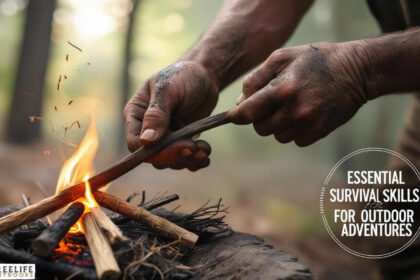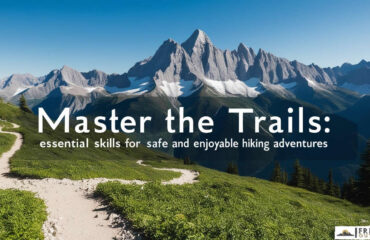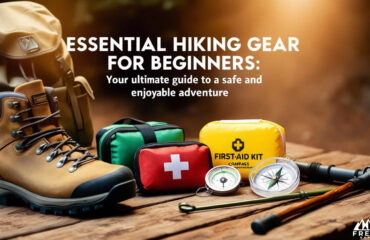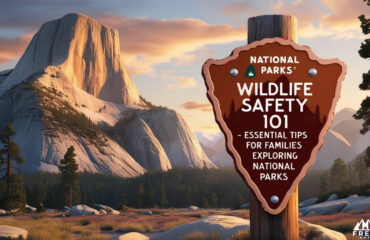
Learn essential survival skills for outdoor adventures, including fire-making, foraging, first aid, and navigation techniques to ensure safety and self-reliance in the wild.
Essential Survival Skills for Outdoor Adventures
1. Understanding the Importance of Outdoor Survival Skills
Survival skills are vital for ensuring safety and self-reliance during outdoor excursions, especially when unexpected situations arise. These skills have evolved significantly, influenced by both military needs and civilian experiences, particularly during the World Wars, where survival training became a critical component for soldiers. Today, the growing interest in survival techniques has been fueled by reality television shows, which often dramatize these skills, making them more accessible and appealing to the general public.
Acquiring survival skills not only enhances your confidence in navigating the outdoors but also reduces anxiety in emergency scenarios. For instance, knowing how to build a fire or find potable water can drastically improve your chances of surviving until help arrives. Furthermore, developing these skills fosters a stronger connection with nature, encouraging responsible stewardship of the environment and enhancing your survival skills.
2. Critical Skills for Outdoor Survival
Among the most essential survival skills are fire-building, water purification, and shelter construction. Fire provides warmth, cooking capabilities, and a means to signal for help. Techniques such as using friction methods, like the bow drill, or employing flint and steel can be effective in igniting a fire without modern gear.
Purifying water is crucial to avoid illnesses caused by contaminated sources. Methods include boiling water, using filters, and creating solar stills to collect moisture. Constructing a shelter is equally important, as it protects against harsh weather. Knowledge of various designs, such as lean-tos or tarp tents, allows for quick improvisation using natural materials found in the environment. For example, setting up a shelter away from water sources and on elevated ground can help mitigate the risks of flooding and wildlife encounters.
3. Foraging and Food Acquisition
Foraging for edible plants and securing food sources are critical skills in a survival situation. Identifying plants like stinging nettle and lamb’s quarters can enhance your food options in the wild, while avoiding mushrooms is advisable due to the risk of toxicity [2]. Learning trapping techniques and fishing can also provide protein, with methods like setting snares or using improvised fishing gear being particularly useful.
Understanding food safety while foraging is essential to prevent illness. Familiarity with local flora can aid in recognizing and avoiding poisonous plants before heading out into the wilderness. For instance, learning how to prepare and cook foraged food, such as boiling or roasting, can increase nutritional intake and decrease health risks. Additionally, insects can serve as a high-protein food source in desperate situations, offering a sustainable option when larger game is not available.
4. First Aid and Emergency Medical Skills
Basic first aid knowledge is indispensable for outdoor adventurers, as it can significantly improve outcomes in emergencies. Skills such as CPR, bleeding control, and trauma treatment are critical for managing injuries until professional help can be reached. Carrying a well-equipped first aid kit and knowing how to use its contents effectively can mean the difference between life and death.
Regular practice of first aid techniques, including treating common outdoor injuries such as sprains or insect bites, ensures readiness in emergencies. For example, using natural remedies like aloe vera for burns or applying pressure to a bleeding wound can provide immediate relief and support until further medical assistance is available. Understanding these skills enhances confidence and promotes a proactive approach to outdoor safety.
5. Navigation and Orienteering Skills
Mastering navigation techniques is essential for finding your way in unfamiliar terrain. Skills involving maps, compasses, and GPS devices are crucial, but it’s equally important to understand natural landmarks and celestial navigation techniques as backups when technology fails. Preparation begins with creating a detailed trip plan and sharing it with trusted individuals, enhancing safety in the wilderness.
Familiarity with reading topographic maps provides insights into terrain features that can aid in navigation, while practicing orienteering skills, such as triangulation, improves accuracy in determining your position. Additionally, being aware of local wildlife and environmental cues can assist in navigation, ensuring you remain oriented during your outdoor adventures.
6. Signaling for Rescue
Knowing how to signal for help is a critical skill when lost in the wilderness. Familiarity with distress signals, such as SOS patterns, and using signaling devices like mirrors can be effective in attracting rescuers’ attention. Understanding the importance of creating visible signals, such as smoke from a fire or bright-colored clothing, can increase the likelihood of rescue.
Practicing these signaling techniques regularly ensures readiness in emergency situations. For instance, creating a smoke signal using a fire can be an effective method to alert searchers in remote areas. Furthermore, knowing the international distress signal patterns, such as three short whistles or flashes, can help communicate your need for assistance effectively.
7. Mental Resilience in Survival Situations
Cultivating mental resilience is as essential as physical skills in overcoming challenges during survival scenarios. A positive mindset can greatly enhance your ability to adapt and think clearly under pressure. Practicing mindfulness techniques helps maintain composure and focus, critical traits when navigating stressful outdoor situations.
Developing problem-solving skills enhances adaptability and resourcefulness, allowing you to find solutions to unexpected challenges. For example, setting realistic goals and maintaining a routine can manage stress and improve morale in prolonged survival situations. Keeping a survival journal can also aid in processing experiences and reflecting on lessons learned for future adventures. Building a support network of fellow outdoor enthusiasts can provide emotional support and shared knowledge during challenging situations.
By mastering these essential survival skills, outdoor enthusiasts can significantly increase their chances of thriving during adventures in nature, ensuring safety and enjoyment in the wilderness.




